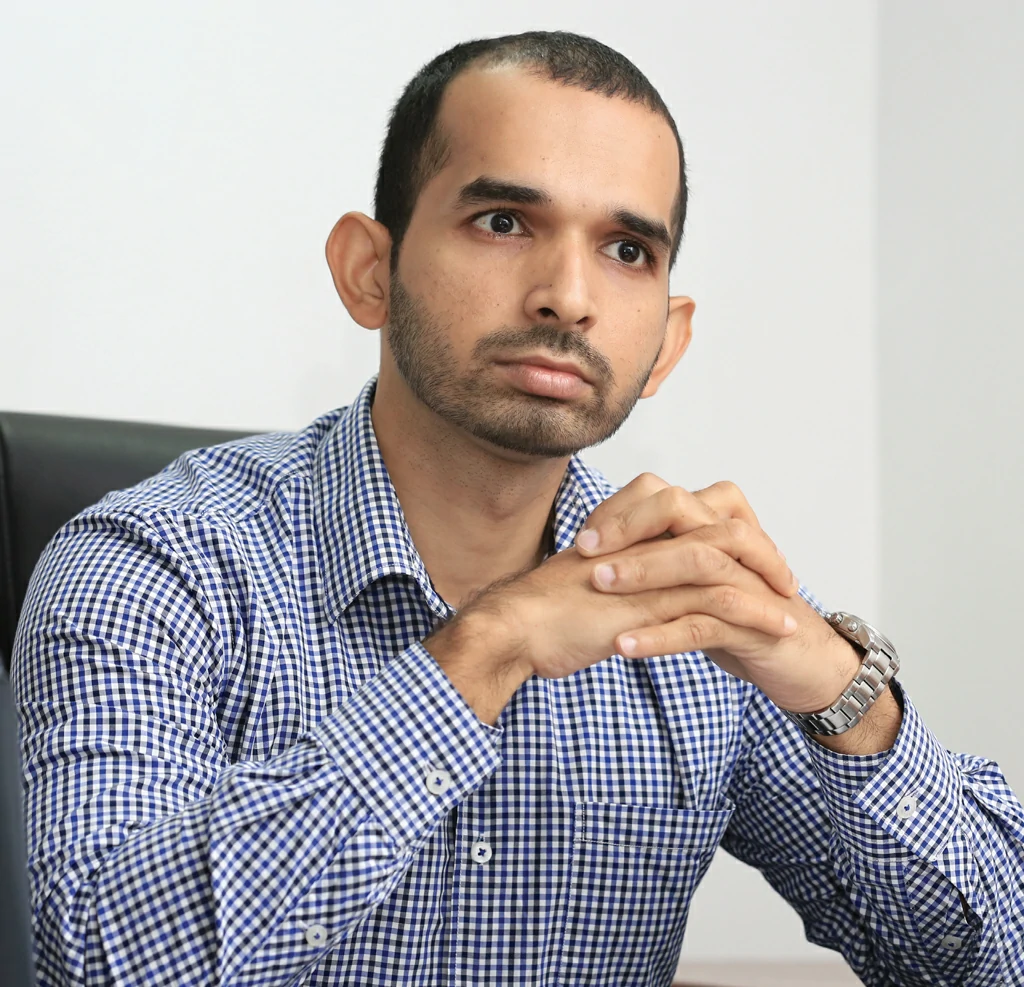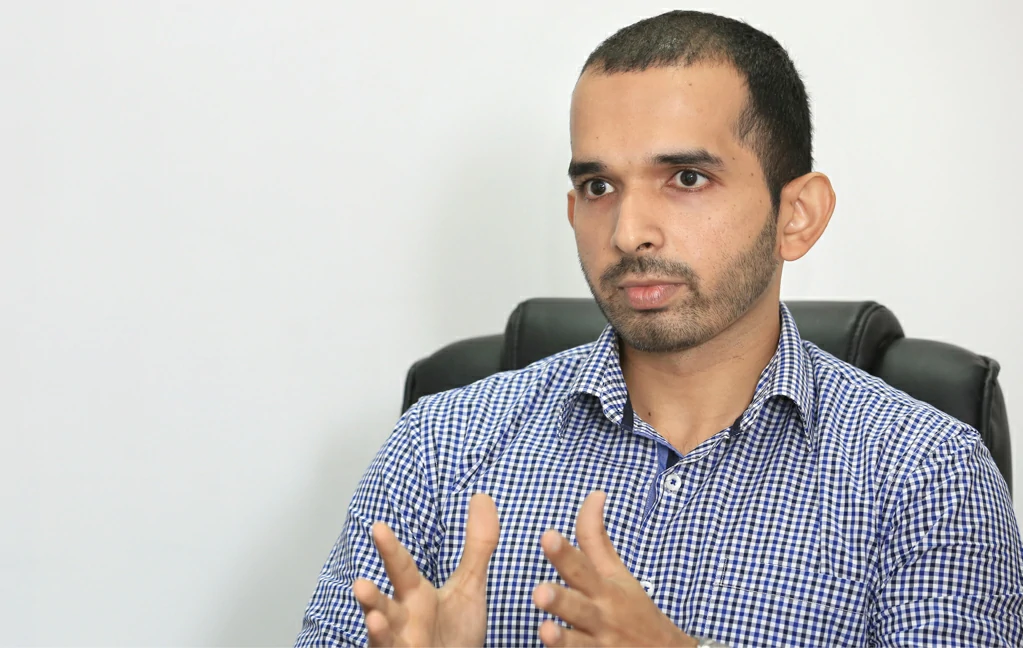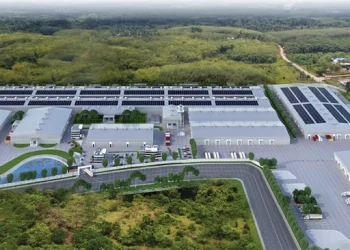
Uniquely positioned within the Asian region, Sri Lanka has the potential to be the next strategic logistics hub of the region. With several infrastructure already in place, it is now time for the private sector to embrace the opportunities available and steer the logistics revolution of Sri Lanka. Senath Jayatilake, CEO, John Keells Logistics (JKL) explains how diversification, scale, and innovation will aid the sector’s projected growth.
By Keshini de Silva | Photography Menaka Aravinda
John Keells Logistics provides a wide range of services. Could you tell us about the company and the solutions you offer?
John Keells Logistics (JKL) is essentially a third-party logistics (3PL) services provider. Our focus is to service the holistic logistics needs of our customers and their supply chains. An outsourced logistics services provider or a 3PL such as JKL takes away the burden of managing complex back-end logistics operations from the customer, enabling greater focus on their core business competencies. Within this scope JKL provides a range of Logistics centre and transport & distribution management solutions, complemented with a portfolio of specialised supply chain consultancy products.
As part of our “one-stop-shop” service proposition, we offer state-of-the-art logistics and distribution centre facilities across the country, incorporating best in class infrastructure, machinery and systems. In addition to customised Logistics Centre management and distribution services, we also offer a range of value addition services such as packing, sorting and bundling & assembly services within our centres to meet individual customer specific needs. As such, our portfolio of services cover the full spectrum of a modern day supply chain, with the aim of providing our customers a holistic outsourced logistics solution, incorporating greater flexibilities, focus and synergy.
To stay ahead of the game and attract international clients there are certain standards that you must maintain. Could you elaborate on your processes to maintain these standards?
JKL is a 100 per cent process driven company. Compliance to international standards and best practices is fundamental to our business as we service a multitude of internationally renowned MNC’s (multinational corporations) and domestic players who emphasise on stringent compliance with such standards. Therefore, we constantly and proactively ensure that we are always abreast with global developments and continuously emulate the same within our operational and service environments. This is why JKL was one of the first companies in Sri Lanka and the country’s first logistics operator to obtain ISO 9001:2015 certification. We are also fully compliant with OHSAS (Occupational Health and Safety Assessment Series) 18001 safety standards; further reiterating are commitment towards safe and healthy operating environments. Being a fully owned subsidiary of John Keells Holdings PLC, a group distinguished for setting benchmarks in governance processes and sustainable operating models, solidifies our commitment and constant drive towards setting touchstones in this industry.
An Outsourced Logistics Services Provider Or A 3PL Such As JKL Takes Away The Burden Of Managing Complex Back-End Logistics Operations From The Customer, Enabling Greater Focus On Their Core Business Competencies
What benefits do companies gain by outsourcing their logistical operations?
The fundamental benefit companies could derive from an outsourced logistics operation is greater focus on their core business. With global supply chains becoming more complex, competition being more intense and end users becoming more demanding, the logistics function of ensuring your goods are delivered to customers in the most cost-effective, efficient and reliable manner becomes pivotal to operations. However, companies ramping up capacity, capability and sophistication in their own supply chains in isolation can be inefficient, costly and more importantly ties up valuable resources that otherwise could have been channelled into their core business activities such as product and market development. This is where a 3PL services provider could be of strategic importance to a company. With specialised, dynamic and scalable end-to-end logistics platforms that companies can plug into, a capable 3PL services provider could cater to a diverse range of logistics needs of a multitude of supply chains concurrently. The flexibilities, cost, efficiencies and service capabilities a 3PL services provider could offer through specialisation, synergy and scale are much greater than what supply chains operating in silos could harness.
How is John Keells Logistics different? What value addition do you provide customers?
JKL has always been about customer centricity. We are not a company that pursues volume over quality. Our efforts are concentrated on providing the best customer experience in the industry. That has always been our motto and modus operandi. Our operations are managed through state of the art Warehouse Management Systems, which give our customers greater visibility and transparency at all times. In an era of complex supply chains servicing dynamic market conditions, holistic visibility across the supply chain adds significant versatility and efficiency to businesses. This is why we place a lot of emphasis on process-system alignment across the business and it is a core USP of JKL. Our focus on continuous improvement has enabled us to constantly evolve our capabilities and provide customers superior levels of service standards. The adaption of best in class processes, greater operational transparency and integration, combined with extensive emphasis placed upon delivering superior customer service, gives us a unique advantage of being the most preferred 3PL services provider in Sri Lanka.
Your thoughts on the current Sri Lankan supply chain and logistics landscape in comparison to the international market?
Sri Lanka is an important node in China’s One Belt One Road policy (Maritime Silk Road) and our geographical positioning close to some of the busiest trade routes in the world gives us the unique advantage to be a strategic logistics hub to service a region that accounts close to 23 per cent of the world’s total population and India, the 5th largest economy in the world.
Sri Lanka Is An Important Node In China’s One Belt One Road Policy (Maritime Silk Road) And Our Geographical Positioning Close To Some Of The Busiest Trade Routes In The World Gives Us The Unique Advantage To Be A Strategic Logistics Hub To Service A Region That Accounts Close To 23 Per Cent Of The World’s Total Population.
Whilst Sri Lanka is heading in the right direction in developing its’ logistics landscape, if we are to successfully compete in the international landscape with the likes of Dubai and Singapore as a strategic logistics node in global trade; we need to make rapid, exponential progress in harnessing this apparent potential. This progress has to come through a cohesive strategic vision of both the private and public sector of Sri Lanka and converting such visions into ground realities. Therefore, as the private sector, this involves our business having to leapfrog in terms of capacity creation and capability extensions across our value chains. The window of opportunity available for the country to establish itself as a major international hub is not eternal, and as such, the sense of strategic urgency is important.
What opportunities do you see through Government initiatives, especially in terms of the Hambantota Port Project?
The geographical advantage of Hambantota is quite explicit. However ports and logistics infrastructure in isolation are not going to provide desirable economic benefits. These infrastructure should be integrated and linked to global value chains to drive volume and reap desired benefits. Whilst there are several initiatives taken by the government to attract FDI’s (Foreign Direct Investments) into the region, the private sector too have a very important role to play in creating dynamic and versatile global industries that are capable of servicing global value chains. We have seen this successfully done in the apparel sector. It is now time to emulate the same across other sectors.
Therefore the potential for Hambantota is not purely logistics sector related. It has the potential to cut across a multitude of existing sectors and incubate new sectors. This proliferation itself creates huge opportunities for the logistics industry in Sri Lanka to expand its wings and progress into the regional sphere.
The Scale And Diversity Of Opportunities That Will Be Available In This Industry For Youngsters In The Future Will Be Enormous.
Whilst Hambontota centric developments are undertaken, it is equally important that we vigorously pursue and commission the logistics infrastructure development plans set out by the Western province megapolis development plan for Colombo, the primary logistics hub of Sri Lanka
What are the opportunities available for youngsters hoping to enter the field?
Currently, the logistics industry in Sri Lanka other than for our port operations, is at a relatively primary stage with a potential for exponential growth. Therefore, the scale and diversity of opportunities that will be available in this industry for youngsters in the future will be enormous. The number of academic and professional qualifications offered in this field in Sri Lanka has increased quite significantly over the last few years, enabling the younger generation to start specialising in the trade from an early stage.
What more needs to be done for the sector?
Sri Lanka is a globally renowned destination for tourism. A lot of good work had been done by both the public and private sector in establishing this brand image for Sri Lanka. Now it is the time for us to emulate the same for the logistics industry. This should be conducted through the formulation of a long term strategic road map for the sector focusing on the development of necessary hard infrastructure, building scale and capability of the sector as well as incubating support industries of international standards capable of servicing global supply chains.
Could you tell us about yourself and your role at JKL?
I joined the John Keells Group after I completed my tertiary education in 2007. I have been with the Group for the last nine and a half years, since joining as an executive. As the CEO, my responsibilities cut across all functions of the company. I work very closely with my management team to ensure that the company is constantly steered towards achieving the very exciting and ambitious plans we have set for ourselves.
What are the new developments and future plans for John Keells Logistics?
Our plans have always been focused on continually enhancing capacity, expanding service offerings and continually providing our customers with the most efficient, diverse and dynamic logistics services available in the market. As a company, we also place a lot of emphasis on driving sustainable efficiency gains through digitization and automation.
As a 3PL, our core service offering had traditionally being focused on the B2B (business-to-business) segment. We are now in the process of incubating several B2C (business to consumer) and B2SME (business to small and medium enterprises) logistics products that enable smaller players in various industries to reap the benefits of outsourcing logistics that were traditionally limited to players of scale. At John Keells Logistics, we strongly believe that portfolio proliferation and continuous improvement is of paramount importance for sustainable growth.






